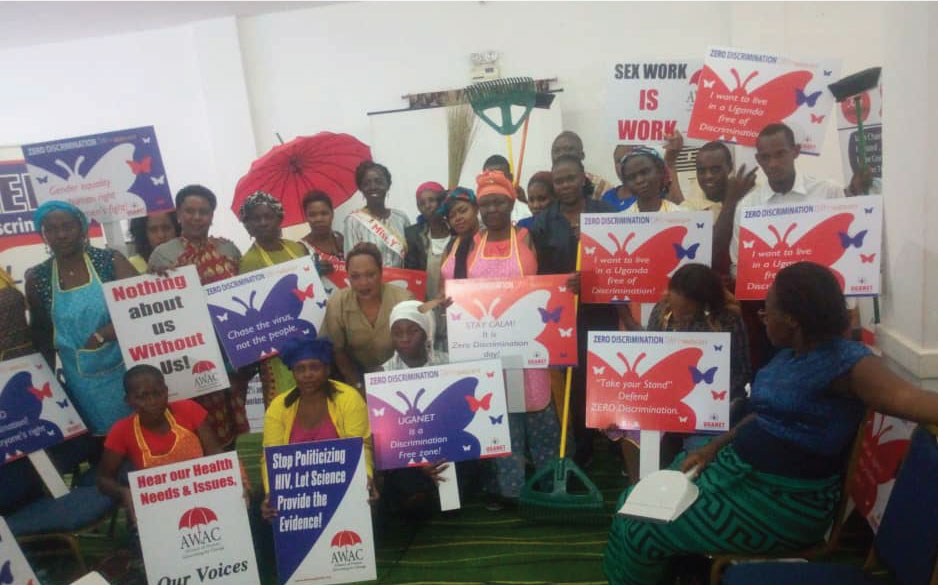As the world marks zero discrimination day, Uganda Network on Law, Ethics and HIV/Aids (UGANET) has called for action to change discriminatory laws and practices that have become significant barriers for access to health, employment and other services.
Zero Discrimination Day was first celebrated by UNAIDS, the United Nations’ HIV/AIDS Program in 2013, aimed at celebrating individuality, inclusion and human rights while promoting tolerance, compassion and peace.
Speaking in a joint meeting of civil society and advocacy groups, the executive director of UGANET, Dora Musinguzi Kiconco, said people living with HIV/ Aids are normally denied access to high pay jobs in various international companies in Uganda and other countries including Saudi Arabia.
She called for repealing of Section 41 on attempted transmission of HIV and Section 43 on intentional transmission of HIV in favour of Section 171 of the Penal Code Act adding they are discriminatory and criminalizes people living with HIV/ Aids.
With specific examples, Kiconco, said Chinese construction companies have registered highest cases of HIV discrimination where applicants are subjected to compulsory HIV testing, where people living with HIV/ Aids are denied chances of working for fear they will infect others.
“UGANET calls for equal dignity that is worth for every person. Ending discrimination and changing laws is the responsibility of us all,” she said at Metropole hotel, Kololo.
Recording artiste, Joanita Kawalya said cooks, house assistants or maids, sex workers, drivers, guards go through highest forms discrimination at their respect work places however no one is there to raise their voices and they are stripped off their rights.
“Being celebrities, sex workers People living with HIV/ Aids does not mean that you don’t have rights to good health, respect and dignity. We all matter in this world,” she said
She said, like other people, People living with HIV/ Aids should be given a chance to work and exploit their abilities or be given a certificate that can clearly confirm that they are incapable of performing their duties.





